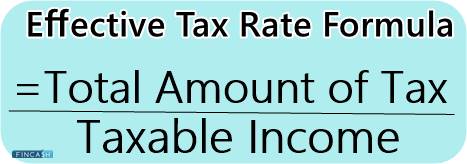Tax Fraud Definition
Tax Fraud occur when some business entity or individual would intentionally or willfully falsify information on the respective Tax Return for limiting the overall Tax Liability amount. Tax fraud is essentially known to comprise cheating on the tax return for avoiding the payment of the complete tax Obligation.

Some of the instances of tax frauds include claim of personal expenses in the form of business expenses, claim of false deductions, utilization of the false Social Security Number (SSN), not reporting the right Income, and so more. Tax evasion or the technique of illegally avoiding paying Taxes that are owed, could be regarded as an instance of tax fraud.
Getting an Understanding of Tax Fraud
Tax fraud involves the intended omission or misinterpretation of data on some tax return. For instance, in the United States of America, the taxpayers are known to be bound by the respective legal duty when it comes to filing the tax return on a voluntary Basis while paying the right amounts of excise taxes, income taxes, employment taxes, and sales taxes.
If one fails to do so by withholding or falsifying information, it is regarded as an act that is against the law and comes under the scenario of tax fraud. The act of tax fraud gets investigated by the IRS (Internal Revenue Service) CI or Criminal Investigation unit. Tax fraud becomes highly evident in case the taxpayer will:
- Intentionally Fail in filing the Income Tax Return
- Prepare and file the false return
- Misinterpret the right state of the affairs for falsely claiming tax credits or tax deductions
- Intentionally fail to pay the respective tax debt
- Willingly fail to report the income that has been received
In case a business is getting involved in the act of tax fraud, then it may:
- Willingly fail to file the respective reports of payroll tax
- Fail to report as well as pay the payroll taxes that might be withheld
- Willingly fail to report a portion or all payments that have been to the employees in cash
- Fail to retain FICA or Federal insurance Contributions taxes from the respective employee paychecks
Talk to our investment specialist
Tax Fraud & Avoidance or Negligence
For instance, to claim the exemption of some non-existent dependent for reducing tax liability, it turns out to be a clear fraud. During the application of the long-term rate of Capital Gain, some short-term earning could be looked upon for determining whether or not the same is negligence. While mistakes contributed to avoidance or negligence tend to be non-intention, still the IRS might come across the negligent taxpayer with around 20 percent penalty of the given underpayment.
Tax fraud and tax avoidance should not be confused. Tax avoidance is regarded as the legal utilization of loopholes in the respective tax laws for reducing the overall tax expenses.
All efforts have been made to ensure the information provided here is accurate. However, no guarantees are made regarding correctness of data. Please verify with scheme information document before making any investment.












